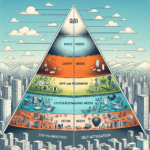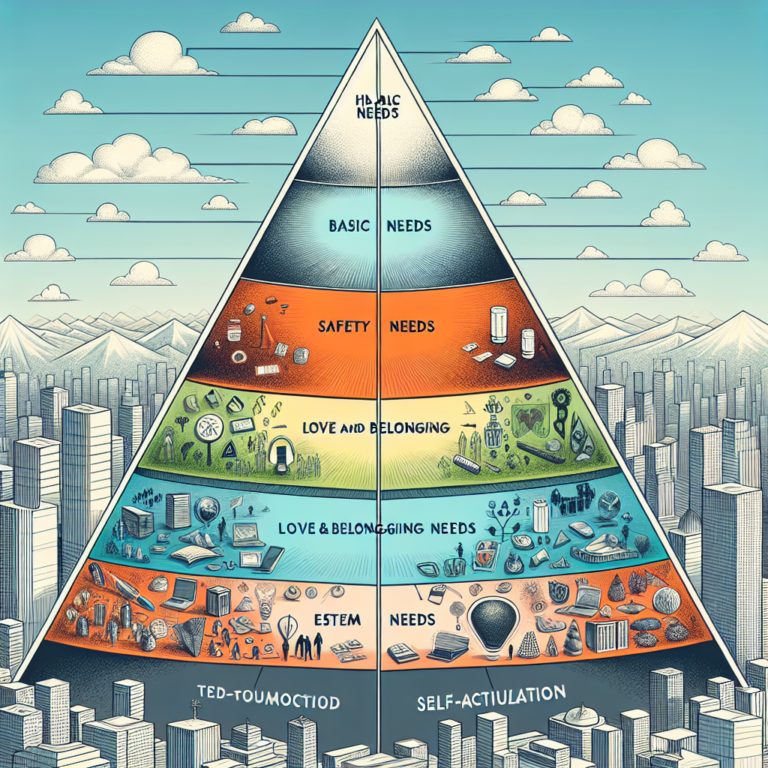
What Can You Do with a Bachelor’s in Psychology? Exciting Careers Await!
Introduction
Are you intrigued by the complexities of human behavior? Do you have a passion for helping others and want to make a meaningful impact on individuals and society? If so, pursuing a Bachelor’s degree in Psychology could be your gateway to a rewarding career. The question that often arises, however, is: What can you do with a Bachelor’s in Psychology? Exciting careers await! This article delves into the various opportunities and paths you can take with this versatile degree, providing you with insights, real-world case studies, and valuable career information. Whether you’re considering this field or exploring post-graduate options, your degree in Psychology can open numerous doors to exciting career possibilities.
The Versatility of a Psychology Degree
A Bachelor’s in Psychology equips graduates with critical thinking skills, interpersonal abilities, and a solid understanding of human behavior. This combination is attractive to diverse fields. From healthcare to education and business, the applications of a psychology degree are vast and varied.
Case Study: Diverse Paths of Psychology Graduates
Let’s consider the journey of three individuals who graduated with a Bachelor’s in Psychology:
- Emily, who pursued a career in marketing, expertly applied her understanding of consumer behavior to develop successful campaigns for a major corporation.
- Jordan, motivated by a passion for helping others, became a mental health technician, assisting in patient care within a psychiatric facility.
- Samantha, who worked as a recruitment consultant, used her background in psychology to assess candidate fit and improve hiring processes.
These case studies illustrate just a fraction of what you can do with a Bachelor’s in Psychology, showcasing the degree’s versatility and practical applications across various industries.
Popular Career Paths for Psychology Graduates
1. Mental Health Technician
Mental health technicians work directly with patients suffering from mental health issues in hospitals, clinics, or rehabilitation centers. Their role involves monitoring patients, assisting with daily activities, and providing support during therapy sessions.
Skills Required:
- Active listening
- Empathy and compassion
- Basic understanding of mental health disorders
2. Human Resources Specialist
In the field of Human Resources, understanding employee behavior is crucial. Psychology graduates excel in creating workplace policies, managing recruitment, and fostering a positive work environment.
Skills Required:
- Communication
- Conflict resolution
- Data analysis
3. Marketing and Consumer Research Analyst
Graduates can apply their knowledge of psychological principles to marketing strategies, utilizing consumer behavior insights to drive successful campaigns.
Skills Required:
- Analytical skills
- Creativity
- Knowledge of market research tools
4. Social Services Caseworker
Social services caseworkers assist individuals and families in accessing necessary social services such as healthcare, housing, and employment.
Skills Required:
- Problem-solving
- Resourcefulness
- Interpersonal communication
5. School Psychologist (Requires Further Education)
While a bachelor’s degree is an excellent start, those interested in becoming school psychologists will need further education. However, undergraduates can still start in a supportive role within educational environments.
Skills Required:
- Understanding of child development
- Communication skills
- Rapport-building
Skills You Acquire in a Psychology Program
Regardless of the path you choose, a Bachelor’s in Psychology arms you with valuable skills:
| Skill | Application |
|---|---|
| Critical Thinking | Analyzing research data and case studies |
| Communication | Conveying complex ideas clearly to diverse audiences |
| Research Skills | Conducting surveys, interpreting results |
| Empathy | Understanding and connecting with clients |
Advanced Degrees: Elevating Your Career Prospects
While many career paths are accessible with just a bachelor’s degree, pursuing further education can increase your career potential. Here are a few advanced degrees that many psychology graduates consider:
Master’s Degree in Psychology
A master’s degree often leads to specialized roles in counseling, social work, or organizational psychology. This level of education allows for deeper knowledge in the field and opens doors to higher-paying positions.
Doctoral Programs (Ph.D. or Psy.D.)
For those aiming to become licensed psychologists or engage in research, a doctoral degree is necessary. These programs provide in-depth training and specialization in various areas like clinical psychology, forensic psychology, or educational psychology.
Case Study: Transformative Outcomes
Consider the story of David, who received his bachelor’s degree in psychology and worked in human resources. His passion for organizational psychology led him to pursue a master’s degree. He is now a senior HR manager, implementing innovative strategies that have significantly improved employee satisfaction and retention at his company. This transition highlights the potential elevation in career prospects that further education can provide.
Exploring Alternative Career Options
In addition to traditional roles, there are numerous non-clinical career avenues available to psychology graduates. Here are some alternative options:
1. Behavior Analyst
Behavior analysts apply principles of behavior analysis to help individuals with developmental disorders, particularly in educational settings. This role often requires certification but offers the chance to make a direct impact on learning processes.
2. Market Research Analyst
Combining psychological insights with market trends, market research analysts help businesses understand consumers’ needs and behaviors, specializing in the analysis of survey data and trends.
3. Non-Profit Sector Advocate
Many psychology graduates find fulfilling work in non-profits, advocating for mental health awareness or working in community outreach programs.
4. Corporate Trainer
Using psychological principles, corporate trainers develop and deliver educational programs aimed at improving employee skills and performance.
5. Writer or Editor in Psychology
For those with a flair for writing, content creation for psychology-related websites, blogs, or publications can be a rewarding avenue, merging psychology knowledge with communication skills.
Advantages of Studying Psychology
Studying psychology offers numerous benefits, not simply in terms of job opportunities, but also personal growth and understanding. Here are several advantages:
Increased Understanding of Human Behavior
You will develop a keen insight into why people act the way they do. This understanding can enhance your personal interactions and relationship-building skills.
Enhanced Communication Skills
A psychology curriculum focuses on interpersonal communication and active listening, skills that are imperative in almost any career.
Research and Critical Thinking
Courses in research methods and statistical analysis empower you to assess information critically and make informed decisions.
Broader Perspective on Wellbeing
With a solid grasp of mental health concepts, you will be more equipped to support yourself and others in navigating life’s challenges.
Conclusion
In answering What can you do with a Bachelor’s in Psychology? Exciting careers await!, it’s clear that the paths are numerous and varied. Whether you’re interested in clinical practice, corporate environments, or creative pursuits, a Bachelor’s degree in Psychology provides a strong foundation for success. The skills and knowledge you gain will not only benefit your professional journey but also enrich your understanding of yourself and those around you.
Embarking on your chosen path requires proactive steps: consider your passions, seek internships, and connect with professionals in your desired fields. The future is bright, and your degree in Psychology is the first step toward a fulfilling and impactful career.
FAQs
1. Can I become a psychologist with a Bachelor’s in Psychology?
No, becoming a licensed psychologist typically requires a master’s or doctoral degree in psychology. However, a bachelor’s degree is essential for entry-level positions and can serve as a stepping stone for further education.
2. Is a Bachelor’s in Psychology worth it?
Absolutely! A Bachelor’s in Psychology opens up numerous career paths, develops transferable skills, and lays the groundwork for advanced study.
3. What are some high-paying jobs with a Bachelor’s in Psychology?
Some well-paying positions include marketing specialists, human resources managers, and behavioral analysts, especially as you gain experience and possibly pursue further education.
4. Can I work in a clinical setting with a Bachelor’s in Psychology?
While direct clinical roles usually require advanced degrees, you can find entry-level positions, such as a psychiatric technician or mental health counselor’s assistant.
5. What should I do if I want to pursue advanced studies in psychology?
If you’re interested in advanced studies, research programs that align with your career goals, prepare for graduate exams (like the GRE), and seek relevant experience through internships or volunteer work.
By considering all these aspects, you will be better equipped to explore the many exciting careers that await you with a Bachelor’s in Psychology!

















